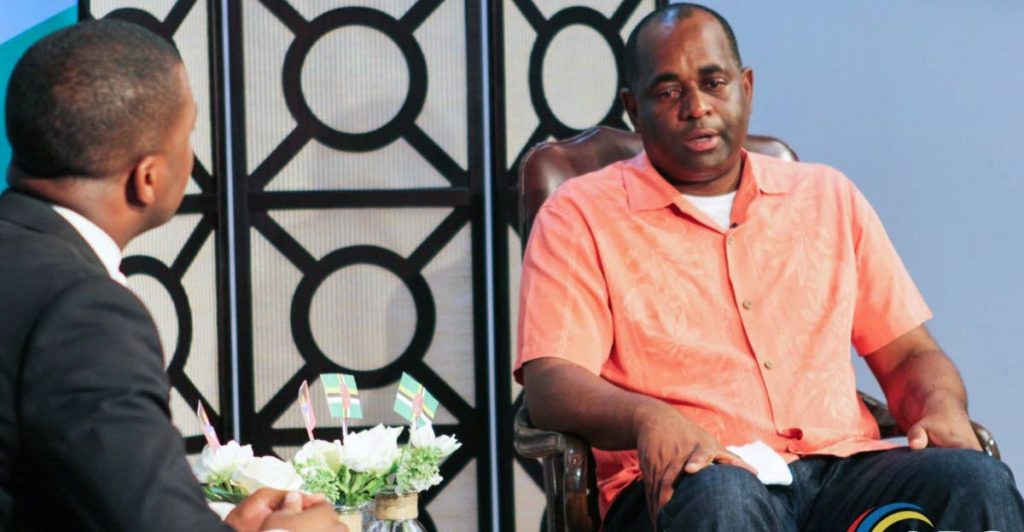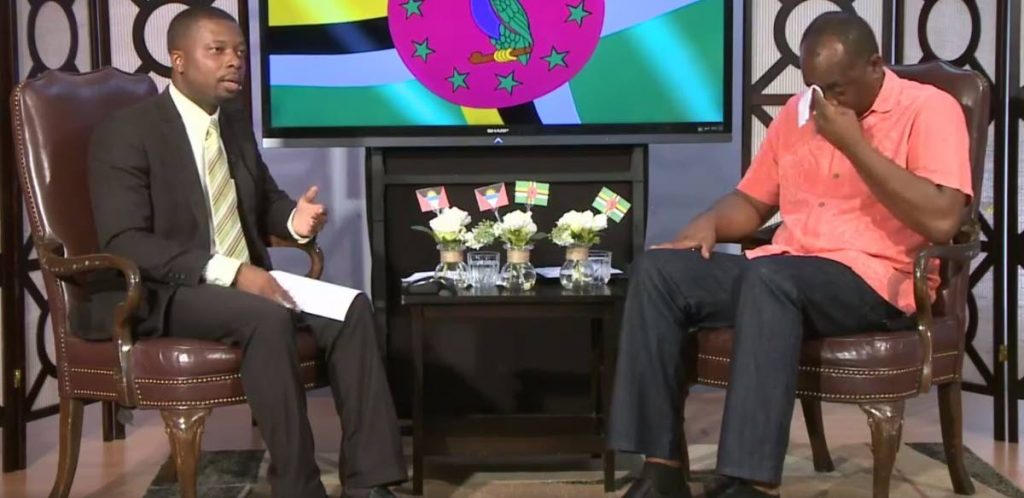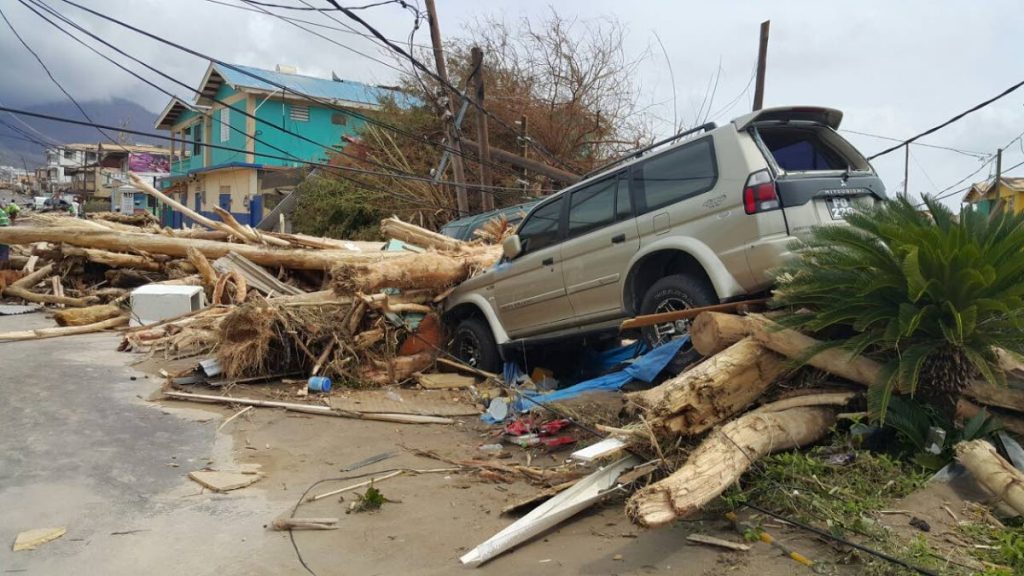Emotional Dominica PM laments: I am homeless

Dominica’s Prime Minister Roosevelt Skerrit, in an emotional interview yesterday with an Antigua broadcasting station, said that like hundreds of fellow Dominicans, he too was left homeless after Category 5 Hurricane Maria devastated the island on Tuesday.
At this time, Dominica has buried 15 people, while 20 are missing and feared dead.
The death toll is expected to rise in the coming days as crews visit remote parts of the island cut off by damage to roads and other infrastructure.
That country remains in a state of emergency and a 6pm to 6am curfew is in effect.
Skerrit told ABSTV/Radio Station that as soon as people start rebuilding, there will be less people homeless.
The tears came when Skerrit related how ordinary Dominicans walked up to him and said their homes were gone and they had nothing save for the clothes on their back.
“Prime Minister, they would say, ‘my house is gone. I am homeless.’ But I had to tell them, that I too...I too am homeless. Your Prime Minister is homeless,” Skerrit said as he wiped away tears.

On the number of people killed, he said, “We do not have the total count because we have not been to some communities.”
VILLAGES WASHED AWAY
Among those areas not reached as yet were the Kalinago (Carib) communities on the east end of the island. “It would be a total miracle if there are no fatalities in those far-flung villages,” he said. In one village, a river was formed that split the village into two and washed away homes.
Maria, following the impact of Tropical Storm Erika in 2015, he said, “has put us back quite a bit. With Erika we had to relocate several villages.” Government was undertaking major housing projects with health clinics and all amenities, but the project is also affected.
“With Hurricane Maria,” Skerrit said, “we also have to take critical decisions in relocating many communities in Dominica. Quite a number of villages would have to be abandoned and people relocated.” Originally, he had no intention of going to the United Nations (UN), but Skerrit had a change of heart and will today address the General Assembly where he will outline to the international community, Dominica’s dire situation.

It was unfortunate, he said, we had to wait for Irma and Maria to let the world understand what we have been saying a long time that we are very vulnerable, we are exposed to the ravages of climate change.
“We need access to resources to build resilient societies and countries. We have been playing our part, but putting in the mitigations systems are beyond us. It is very difficult to raise monies because of per capita and GDP.”
MATTRESS AS SHIELD
Describing Maria’s winds as brutal, Skerrit said people were exposed to the elements and he was told of some hiding in kitchen cupboards when the roof overhead was ripped away. At his private residence, Skerrit said, when the roof began to collapse around him, he put a mattress over his head and pulled two policemen under the mattress to prevent the roof from falling on their heads.
“Every village, every street, every person in Dominica was impacted by this hurricane. With the speed and merciless nature of the wind, roofs and even walls were blown off and entire houses crushed. Then there was the tremendous flooding. Everyone was affected whether upper, middle or lower class. No class of people were spared,” Skerrit said.
It could have been worse, he added, but people in vulnerable communities heeded the government’s warnings and went to designated shelters. The general hospital, he said, resembled a war zone and everything on the island has to be done manually as there is no electricity. The hospital’s dialysis system and its intensive care units are down.
Any patient in need of critical care has had to be airlifted out of the country. Help, Skerrit said, is needed to airlift critical patients to Martinique or any Caricom country that is willing to assist. The PM spoke of a patient who had to receive dialysis treatment daily, walked over 21 miles from Portsmouth to Roseau, to access assistance. “There is another patient, who if not airlifted soon, will expire.”
As search and rescue operations continue, Skerrit said, there is need for relief supplies ranging from building materials, tarpaulins, water, food stuff, baby supplies among many other items. Thankful for the response from the Organisation of Eastern Caribbean States, Caricom countries, Martinique, Guadeloupe and the international community for rallying behind Dominica, Skerrit said, this disaster fostered “a greater sense of unity among the leadership in the Caribbean.” He said Digicel and Flow are working to restore Dominica’s communication to the outside world.


Comments
"Emotional Dominica PM laments: I am homeless"